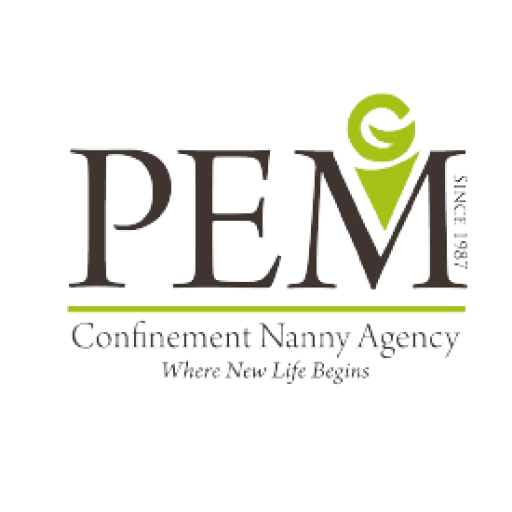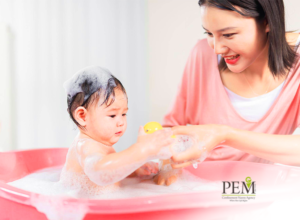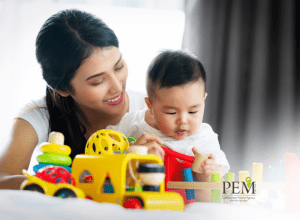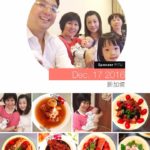[email protected] ♦ (+65) 6293 9249 ♦ Mon - Sun : 10:00AM - 7:00PM
Confinement Practices to Follow and to Avoid
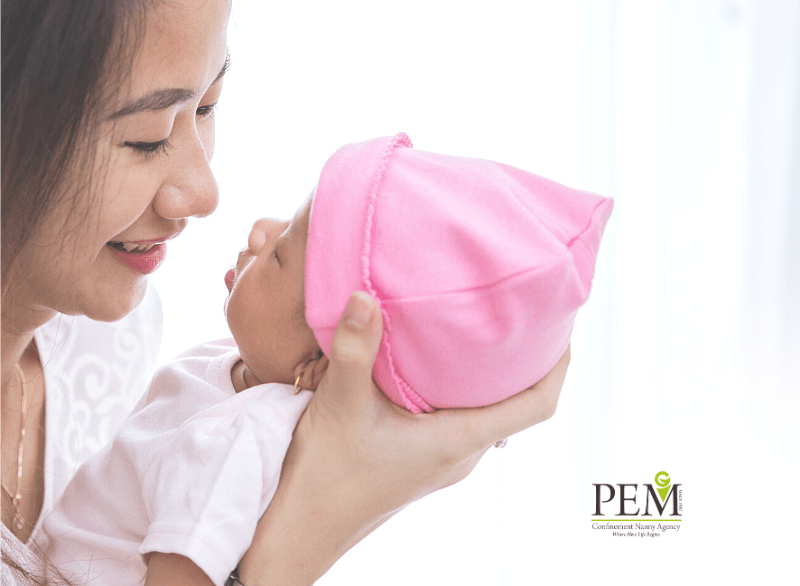
Postpartum confinement is a part of many Asian cultures. It includes traditional practices that are passed down from our previous generations, aimed at helping new mothers to recover and recuperate from postnatal discomforts. During the confinement period, the mother and baby are highly encouraged to stay indoor to prevent future ill health.
You may have observed and been exposed to some of the confinement practices from your parents or elderly. Do you agree with these practices? How many of them are true and should be followed? Let’s find out!
Confinement Rules You Can Break
1. I am not allowed to bath or wash my hair
This might be one of the biggest concerns of new mothers. It is a traditional practice for Chinese mothers not to bathe or wash hair during confinement periods. The reason behind this practice was to prevent mothers catching a cold and causing “wind-cold” to the body. It is also believed that mothers might suffer rheumatism and headache.
However, contrary to traditional beliefs, experts do not recommend mothers to obey this rule, especially living in hot and humid Singapore. It is necessary for mothers to take care of personal hygiene and keep yourself clean and fresh, especially for breastfeeding mothers.
You may bathe in warm water and dry your body immediately after your bath. Do close all your windows and doors before you bathe, so that you would not get exposed to any outdoor wind after you came out from your bath. Furthermore, avoid entering an air-conditioned room or having a fan blowing directly at you when your body and hair is still wet from the shower. On a side note, you can get a herbal bath, which can help to expel wind, and relieve postpartum discomforts, and improve your mood.
2. I cannot drink plain water
Based on traditional belief, new mothers need to avoid plain water, and the only drink allowed during confinement is red dates tea. The truth is, you are advised to take adequate fluid consumption to stay hydrated, especially if you are a breastfeeding mother. You can drink plain water during confinement to get hydrated and in order to keep your kidney produce more urine in the first few weeks after you give birth. This is to remove the excess fluid in your body during your pregnancy. A normal adult needs at least 8 glasses of water a day. As a breastfeeding mum, you should drink a little more to meet your breastfeeding needs. Meanwhile, you can enjoy red dates tea or ginger tea in moderation.
3. I should only eat meat, liver and herbs
During confinement, it’s a period for new mothers to get balanced and adequate nutrition to restore blood loss during pregnancy and breastfeeding. The belief here is to meet the needs of getting enough “heating” food such as meat, liver and ginger. Well, it is not a problem to consume these foods. In fact, meat, pork intestines and ginger contain nutrients that help you with recovery and lactation. However, mothers should not only take certain foods to recover. You need a well-balanced diet to recuperate your body. A proper meal planning will benefit both you and your newborn baby. New mothers who need a helping hand to prepare confinement food can consider to hire a well-trained confinement lady. Getting a confinement lady can be helpful as mothers can enjoy confinement food after c section or natural birth without the hassle of preparing confinement meals on her own.
You May Also Read this : Best Types of Confinement Food for Post-Caesarean
Confinement Practices You Can Follow
1. Leave the house chores to someone else
New mothers should get enough rest after going through pregnancy. This would allow mothers’s womb to recover and revert to its original state. It also heals your perineum tears or c-section wounds during this period. From the traditional Chinese medicine perspective, it is also believed that confinement helps to replenish ‘qi’ in the body and regain health. Getting a helper or a confinement nanny would assist you in doing house chores and take care of your little ones. You could also get some nursing advice from the confinement lady. You may also find suitable nursing accessories for your baby at MumChecked in Singapore.
However, to get adequate rest doesn’t mean you have to lie in your bed all the time. You are allowed to have a light walk and move around if you find it comfortable, as this would help to reduce the risk of blood clots.
2. You can read!
It is believed that reading will weaken your eyesight during confinement due to blood loss and weakened liver after childbirth. While it’s true that mothers should get a good amount of rest during confinement, doing activities like reading can help to make your confinement period more interesting. To protect your eyes during confinement, you can have some Chinese wolfberries which are famous for strengthening and maintaining your liver and eye health. Other than that, foods that are high in vitamin A like carrots and pumpkins are great in helping you to promote good eyesight too. After a couple of days into confinement, you may start reading if you feel comfortable with it. Keeping yourself entertained on reading is nice. That said, remember to take a break for about 30 minutes to relieve your eye stress.
3. Don’t lift heavy things
This is the same idea as not doing house chores, especially for mothers who went through cesarean delivery. It is best to not lift anything that is heavy for the first few weeks, as your wound is not fully recovered yet. Otherwise, it may lead to pelvic organ prolapse, where your womb might drop. This is because after childbirth, your lax ligaments and pelvic floor muscle has weak support. Remember to leave the heavy stuff to others, you are advised not to hold anything heavier than your baby.
